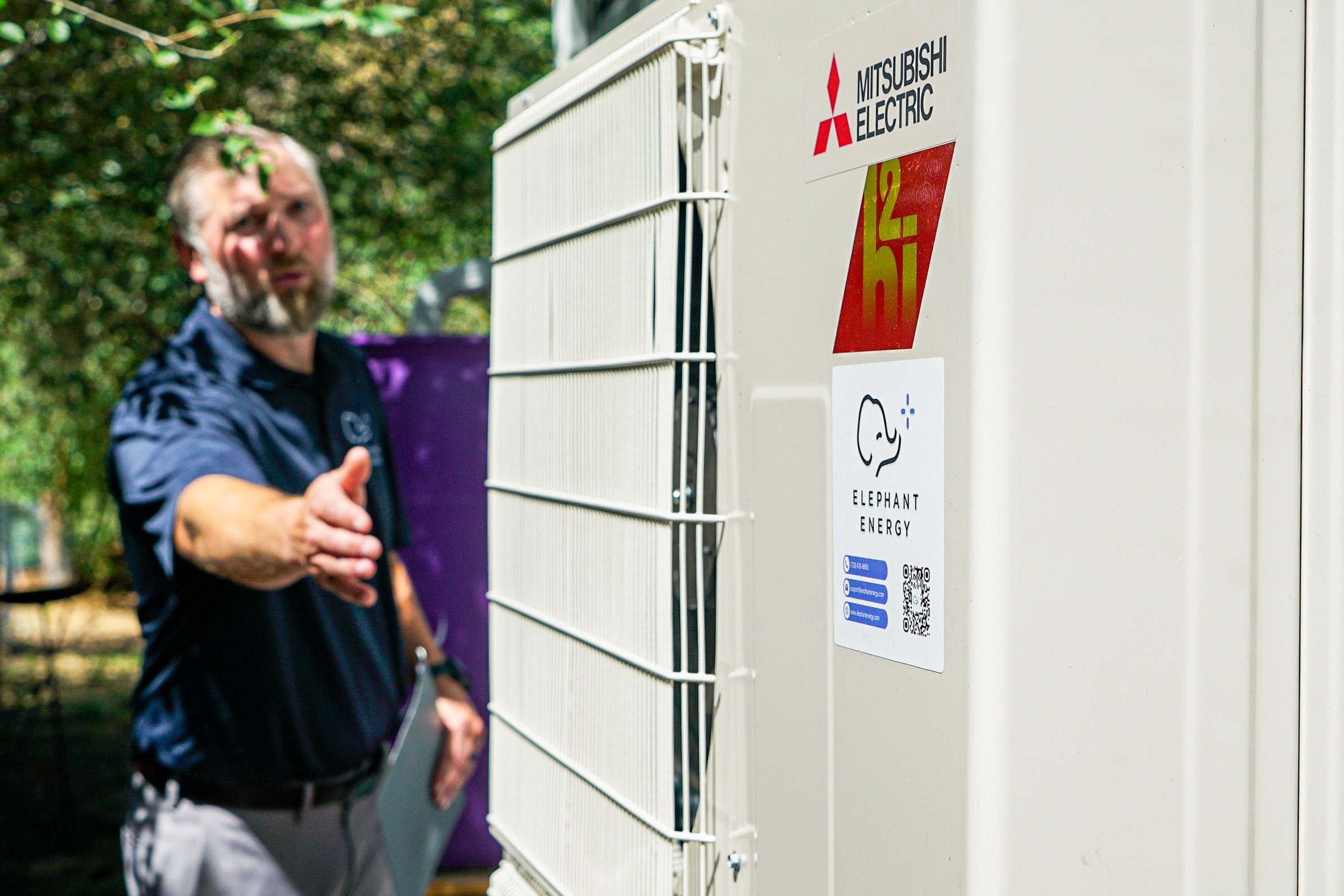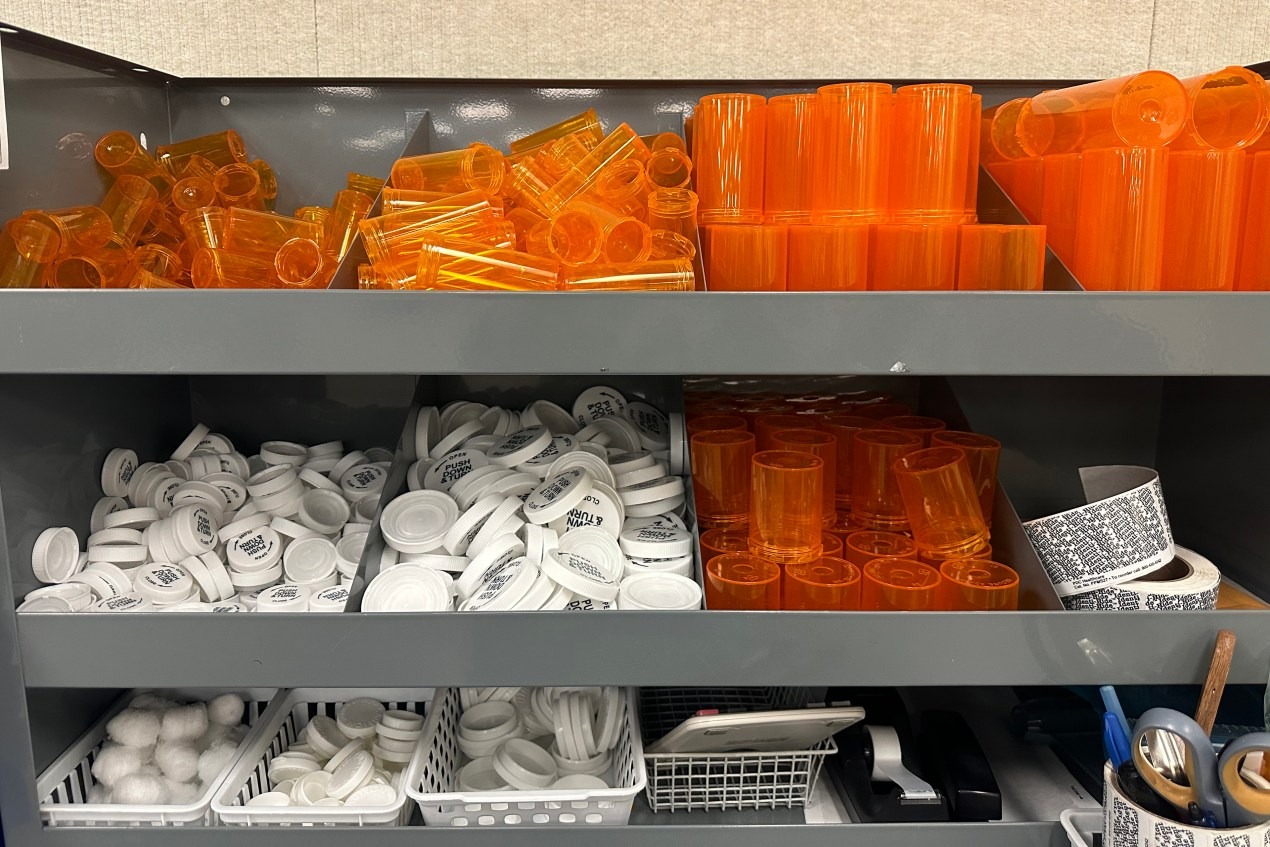
Coloradans looking to make their homes more climate-friendly can now apply for up to $14,000 in rebates for electric appliances and energy upgrades.
On Thursday, the Colorado Energy Office opened applications for its Home Electrification and Appliance Rebate Program, or HEAR, which offers discounts for electric stoves, heat pumps, heat pump water heaters, insulation, wiring and panel upgrades.
The program is funded by the Inflation Reduction Act, the landmark climate and health care law signed by President Joe Biden in 2022. The $4.5 billion investment has so far survived the Trump administration’s attempts to claw back federal investments designed to slow global warming.
Along with support for electric vehicle chargers along highways, the discounts appear to be a rare example of a green energy initiative continuing under President Trump. Will Toor, the executive director of the Colorado Energy Office, said the federal government hasn’t actively stopped Republican- and Democratic-led states from launching the rebate programs.
“We can’t predict what the federal government may do in the future, but both Congress and the administration have allowed the programs to move forward, and we have no indications that that’s going to change,” Toor said.
The new discounts, however, come less than two months before the federal tax credit for home energy upgrades expires.
What kind of home energy upgrades are covered by the rebates? And who qualifies?
The rebates offer discounts on all-electric appliances certified by the federal Energy Star program. It’s available to homeowners living in manufactured or single-family homes. Renters can also apply with the written authorization from their landlords.
To qualify for the maximum amount, a household must earn less than 80% of its county’s area median income. Households earning between 80% and 150% of the AMI can qualify for the rebates, but can only receive discounts worth up to half of the total project cost. Potential applicants can consult state income tables to determine their county’s AMI.
How can residents apply?
Anyone interested in the discounts should start with the online application.
The process involves submitting income verification documents. If approved, participants should contact a contractor registered to participate in the rebate program, according to Raine Queenan, a senior program manager with the Colorado Energy Office. A full list of registered contractors is available on the state website.
Those contractors will then help decide the full scope of upgrades. Once complete, the state will review the proposed projects and issue the rebates to installers, which would apply the discounts to the upfront cost paid by customers.
“There are a lot of requirements in this program, and we want to ensure Coloradans — especially low-income Coloradans — are receiving professionals who are trained and ready to support them,” Queenan said.
Are there even enough contractors to do the work??
Not yet.
Only four contractors have fully completed registration with the state to participate in the rebate program. Queenan said more than 40 additional companies spread across Colorado are now working their way through the registration process.
Ari Rosenblum, a spokesperson with the Colorado Energy Office, acknowledged many households might not be able to obtain a contractor through the program immediately. The sooner households apply and prove their eligibility, the sooner the state can connect participants with registered contractors, Rosenblum said.
Elephant Energy, a Boulder-based home electrification company, is still awaiting approval to participate in the state rebate program. Co-Founder D.R. Richardson said state communication about the program has been “hit or miss,” but he’s glad the incentive program is moving forward.
“Medium-term, this is amazing. This is money for low-income homeowners to electrify their homes,” Richardson said.
Have other states launched programs like this??
Besides Colorado, 12 other states and the District of Columbia have launched some version of the federally funded home electrification rebate program, according to an ongoing analysis published by the National Association of State Energy Officials.
David Terry, the president of the association, said other states are awaiting final approval from the U.S. Department of Energy to launch their rebate programs. Those efforts are now on hold while the federal government “streamlines” requirements for states receiving the federal funding.
It appears Colorado avoided the issue by launching an initial version of the program last year. Toor acknowledged that the move allowed the former Biden administration to approve Colorado's program — clearing the way for it to launch consumer-facing rebates more quickly than most other states.
A spokesperson for the U.S. Department of Energy did not immediately reply to a request for comment.
How many households can benefit from the program?
There’s a fixed amount of funding available for the program.
Out of an initial $70 million federal grant, Colorado has set aside $46 million for rebates earmarked for single-family homes, manufactured homes and small multifamily buildings. The program will last through 2029 or when the state exhausts its federal funding.
Based on those constraints, Toor expects the rebate program will provide benefits to at least 6,500 households. The final number could vary widely, however, depending on whether participants opt for cheaper upgrades like induction stoves or more expensive options such as a heat pump, or new insulation.
Are there other programs available to discount the cost of home energy upgrades?
Yes — and it’s not easy to figure out the full range of incentives.
Municipal governments like Boulder County offer rebates for home energy upgrades. Xcel Energy, Colorado’s largest utility, also offers discounts on heat pumps through its Clean Heat Program, an incentive program ordered by state policy makers.
Additional rebates could also arrive in the next few months. In early 2026, Colorado plans to expand its new rebate program to include discounts for small multifamily buildings. In the first quarter of 2026, it will also launch its version of the Home Efficiency Rebate (HER) Program, a separate federally funded initiative offering $56 million in rebates based on the amount of energy saved by different building upgrades. The Denver Regional Council of Governments also received a $200 million federal grant to boost cleaner buildings around metro Denver.
It’s a rapidly shifting landscape Elephant Energy navigates on behalf of consumers and HVAC subcontractors. Richardson said the complexity has benefited his company, but he fears it’s holding back the larger home electrification industry.
“It’s really hard as a consumer or HVAC contractor to stay on top of it all,” Richardson said.









